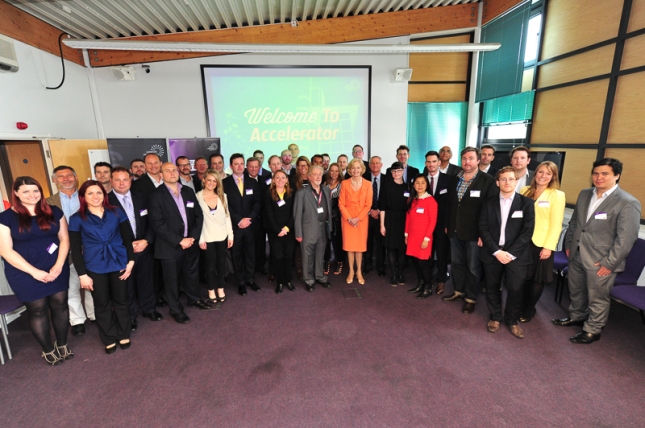An article that I wrote for Tech City Insider that was published this morning.
Increasing numbers of Australian entrepreneurs are now calling Tech City home, with about 50 now run by Australians. It was unsurprising that Australian governor general Quentin Bryce wanted to visit this month. James Swanston, an Aussie running London green business Carbon Voyage, reports.
From brand new companies such as Talented Heads and The Fetch, through to more established names such as Skimlinks, Lovefilm and Hailo, and other parts of the ecosystem such as the London Accelerator, Techhub and 3Beards, Aussies are involved throughout the startup ecosystem. Even a member of the Tech City Investment Organisation has an Australian passport.

Australian Governor General Quentin Bryce at an afternoon tea at the London Accelerator with Aussies in Tech City including Shib Matthew (Yuno Juno), Sean Kirkegaard (Zoopa Heroes), Chris Skitch (Didgeroo) and Pru Ashby (TCIO).
While all have their own individual stories about why they moved to London, there are a few common themes, particularly greater market opportunities and better access to capital than what is available back home. The great melting pot of cultures, ideas and adventure that you get in London is of course a great draw card also.
Bryce Keane, who founded marketing agency Albion Drive was inspired to base himself in London due to the boundless opportunities to make things happen here given that “everyone is from somewhere, which means everyone comes here to achieve something.” Not only did this allow him to fully immerse himself in the tech scheme, but then inspired him to be one of the co-founders of 3beards, which is all about building the community here.
As the first female to hold the role of governor general, Quentin Bryce was particularly keen to meet young female tech entrepreneurs in Tech City. One who had literally just arrived a few weeks before was Pip Jamieson from The Loop, who have created a platform that is not only easy for creative professionals to promote themselves on, but equally as easy for businesses to search and hire top creative talent.
Abnormally for an Australian entrepreneur in London, Jamieson was able to secure $2 million (about £1.3 million) in funding before moving to London. A key reason for her moving was seeing that the cultural barriers to entry were low and that “over the last decade the UK creative sector has grown twice as fast as the rest of the economy and has been identified as a key sector in driving economic recovery in the region.”
In common with many immigrant entrepreneurs, Australians see London as a great place to come together as a community and gain access to better funding and mentors compared to back home; rather than feeling rather alone in the startup world, being an entrepreneur in a startup community allows you to have a support network to help and advice from people that have gone through exactly the same ups and downs of startup life.
One of the most well-known Aussie founders here, Alicia Navarro of Skimlinks says she “left Australia to become an entrepreneur as – at the time – there was limited access to startup venture capital and no startup community. London had all of this, and was much easier for me to move to than the US.” A new entrepreneur to London, Natalie Waterworth from Talented Heads had a similar view when she recently moved over as she sees “no shortage of opportunities to start scalable businesses; the energy and enthusiasm in London’s digital community is captivating and all-encompassing.” For Australians also, the shared culture and similar business rules has made life easy for entrepreneurs such as Noel Duncan from Sisu Wellness to reduce some of the legal hassles of moving here.
Yet obtaining capital in Australia is seen as the key problem for many Australian entrepreneurs and actually many angel investors. Richard Celm, who runs the London Accelerator, agrees agrees saying that the investment community is far more mature than that back in Australia.
And Bill Morrow, who runs Angels Den, the biggest Angel network in the UK, says many Aussie entrepreneurs come to the UK and their Asian offices to access more efficient capital markets. He says they have dozens of Aussie angel investors using them to source deals simply because they can’t find suitable deals back home.